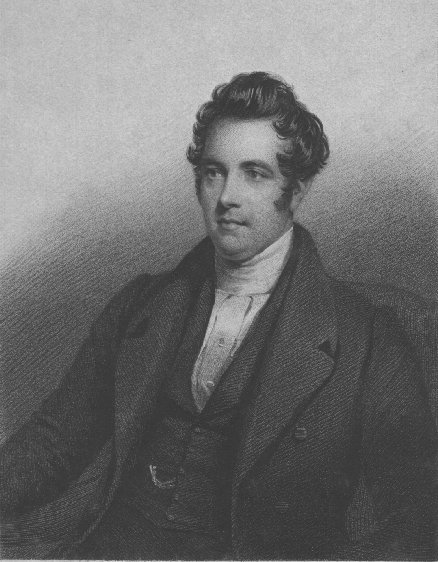REVEREND David Cargill finally says goodbye to his wife of seven years and prepares to bury both his wife and daughter Ann.
He is visited by Reverend William Cross.
While recovering from the pain Reverend Cargill, continues with his evangelisation work.
This is the account of the late Reverend David Cargill from the book “The Diaries and Correspondence of David Cargill, 1832-1843,” edited by Albert J. Schütz and published by the Australian National University.
Tuesday, June 2, 1840
The last sentence which she was heard to utter was, ‘I have — I have been — I have been a n ,’ and we thought she added unprofitable servant.’ May my services be as faithful; may my labours be as abundant. For several minutes after this I leaned over her, and was uncertain whether or not she had ceased to breathe. My hand was still in hers and I requested her several times to press it if she knew me. But her hand had forgotten its cunning, and her tongue cleaved to the roof of her mouth. She fell asleep in Jesus about a quarter before six o’clock in the morning. During her last moments every enemy seemed abashed and routed. Not a struggle agitated her limbs; not a pang distorted her features; not a groan moved her lips; but with the calmness, — the collectedness, and the dignity of a conqueror rendered invincible by Almighty grace, she passed ‘through death triumphant home.’ The report of her death was soon circulated among the natives. In a few minutes the King (Roko Tui Dreketi) and one of his brothers with the queen came to console with me. She was beloved by all who knew her and hated by none. Christians and heathens showed respect to her memory. Her body was wrapped in a linen winding-sheet, which Mrs Jaggar made out of a sheet which we brought from home with us. Even in death her features were lovely. About six past 10 o’clock Mr Cross arrived from Viwa and was astonished and grieved to hear of the tragic event. The carpenter made a neat coffin, which we covered with dark blue cloth. The body was placed in the coffin about 4pm. Ann was laid on her left arm with her head on her mother’s shoulder. In an agony of feeling I kissed the bodies, spread over them a sheet, filled the coffin with sawdust and then screwed on the lid. Lajike with his wife and many of the Tongans who were visiting Ratu Tanoa at Bau called to sympathise with us and to assist to consigning to the silent grave the mortal remains of a departed friend. The brethren and their wives, as well as the natives, seemed to vie with each other in acts of kindness to me and our children, and in showing respect to the memory of the deceased. We were married seven years, eight months and 27 days.
Wednesday, June 3, 1840
The mortal part of my dearest Maggie was deposited in the narrow house appointed for all living about 10:04am Mr Cross conducted the funeral service. The first Lieutenant and three other of the officers from H.B.M’s vessel of war the ‘Sulphur’ were present on the mournful occasion48. She was buried in the house in which she died. Mr. Cross left us about noon and at his most urgent request, though contrary to my feelings I allowed him to take Augusta and Margaret with him. In the afternoon the Tongan teachers and their friends began to raise a mound of earth over the grave.
Thursday, June 4, 1840
This afternoon the mound of earth over the grave was finished. It is a great work, and reflects credit on the Tongans. They performed it with great cheerfulness. The earth is supported by strong slabs.
Saturday, June 6, 1840
Went on board the Sulphur, — was kindly received by the officers, grossly insulted by the Captain.
Sunday, June 7, 1840
Preached in the morning in the Fijian language.
Monday and Tuesday June 8-9, 1840
Employed in packing Maggie’s clothes and in making arrangements for returning home with our dear children.
Wednesday, June 10, 1840
This afternoon when preparing to go over the water to Rewa to conduct the service, I received a message from Captain Belcher by his first Lieutenant, requesting me to wait for him at the King’s house. In consequence of his want of politeness, as well as the abrupt manner in which he sent the message, I thought it my duty to refuse to go; but
told him that we should be glad to see him at the Mission premises.
Thursday, June, 11 1840
This morning I was visited by the king and queen, who came to inform me that Captain Belcher was incensed against me because of the tambu on the pigs and chickens, -and because of the regulations which had been made by the Captain of the US vessel of war49. The king, queen, king’s brother and many others of the natives assured me that Captain Belcher would threaten to tie me, — take me on board of his vessel, — and to flog me. The natives call him a tamata lialia50 — a foolish man and a tamata viavia turaga, — a man desirous of being a chief.
Saturday, June 13, 1840
This evening we received a visit from the chief of Suva. We are pleased with his steadiness and apparent firmness and pray that he may not grow weary in well-doing.



